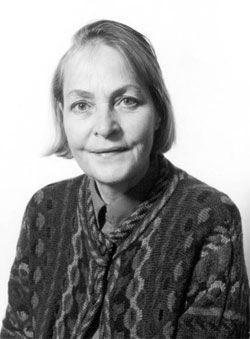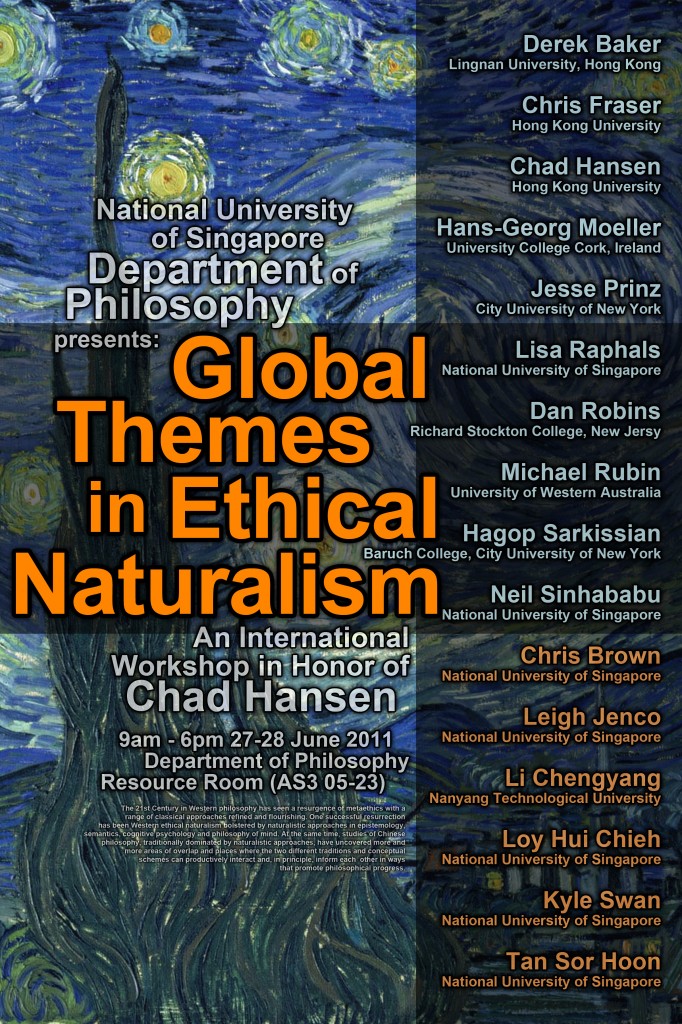 The Confucian Foundation is sponsoring three Book Prizes every year of SGD1000 each, to be awarded to students who excel in Chinese philosophy. The NUS Philosophy Department will select the award winners from those enrolled in its Chinese Philosophy modules. Winners will receive the Confucian Foundation book prizes at the annual celebration of Confucius Birthday, 2012-2014, to be held by the Nanyang Confucian Association. The Association, represented by its President Mr Kek Book Leong, and the department, represented by Associate Professor Tan Sor Hoon, signed the MOU for the book prizes at this year’s Confucius Birthday celebrations on 24 Sep 2011. The event was reported in the Lianhe Zaobao (26 Sep 2011).
The Confucian Foundation is sponsoring three Book Prizes every year of SGD1000 each, to be awarded to students who excel in Chinese philosophy. The NUS Philosophy Department will select the award winners from those enrolled in its Chinese Philosophy modules. Winners will receive the Confucian Foundation book prizes at the annual celebration of Confucius Birthday, 2012-2014, to be held by the Nanyang Confucian Association. The Association, represented by its President Mr Kek Book Leong, and the department, represented by Associate Professor Tan Sor Hoon, signed the MOU for the book prizes at this year’s Confucius Birthday celebrations on 24 Sep 2011. The event was reported in the Lianhe Zaobao (26 Sep 2011).
Author Archives: Anjana
Knowledge is sexy, by Nicholas Smith (23 August 2011)
Philosophy Seminar Series: 23 Aug 2011, 2-4pm, Philosophy Resource Room; Speaker: Nicholas Smith, James F. Miller Professor of Humanities, Lewis & Clark College; Moderator: Dr. Ben Blumson
Abstract:
In this paper, I review the arguments for and against a defense of naturalized epistemology in terms of survival, and then offer a rather different account of why human evolution supports the reliability of our cognitive equipment. I argue that philosophers’ appeals to the processes of natural selection that are adaptive in terms of survival have provided an incomplete picture of what naturalists have available to them to make the sort of defense skeptics claim cannot be made. To supplement this picture, I provide evidence from what Darwin called “sexual selection” and also what others now call “social selection” to provide a more complete picture of why it is reasonable to suppose that evolution has supplied human beings and many other animals highly reliable and also veridical cognitive processes.
Public Lecture: Aristotle’s two kinds of happiness: competition or co-operation? by Sarah Broadie (19 August 2011)
Public Lecture presented by Philosophy Department : 19 Aug 2011, 4:30-6:30pm (light refreshments provided at 4pm), NUS FASS Auditorium AS7-01-02; Speaker: Sarah Broadie; Wardlaw Professor of Philosophy, University of St Andrews; Moderator: Prof Lisa Raphals
Abstract: At the end of his Nicomachean Ethics Aristotle, as is notorious, promotes the ‘life of theoretical wisdom (sophia)’ as the highest human ideal. But what has this life to do with ethics as we understand it – and as Aristotle has taught us to understand it?
 About the speaker: Sarah Broadie (B Phil, Ph D) is a Professor of Moral Philosophy and Wardlaw Professor at the University of St Andrews. She taught at the Universities of Edinburgh, Texas at Austin, Yale, Rutgers, and Princeton, before coming to St Andrews in 2001. A specialist in Classical Philosophy, she is interested in many areas of metaphysics and ethics, modern as well as ancient. Sarah Broadie is a fellow of the British Academy, of the Royal Society of Edinburgh, and of the American Academy of Arts and Sciences. In 2003 she gave the Nellie Wallace lectures in the University of Oxford, entitled Nature and Divinity in the philosophies of Plato and Aristotle.
About the speaker: Sarah Broadie (B Phil, Ph D) is a Professor of Moral Philosophy and Wardlaw Professor at the University of St Andrews. She taught at the Universities of Edinburgh, Texas at Austin, Yale, Rutgers, and Princeton, before coming to St Andrews in 2001. A specialist in Classical Philosophy, she is interested in many areas of metaphysics and ethics, modern as well as ancient. Sarah Broadie is a fellow of the British Academy, of the Royal Society of Edinburgh, and of the American Academy of Arts and Sciences. In 2003 she gave the Nellie Wallace lectures in the University of Oxford, entitled Nature and Divinity in the philosophies of Plato and Aristotle.Public Lecture: How Does Xunzi Really Disagree with Mencius? How Their Differences Might Help Us Think about Human Nature and Morality by David Wong (12 August 2011)
Public Lecture jointly presented by Philosophy Department, NUS and School of Humanities & Social Sciences, NTU: 12 Aug 2011, 4:30-6:30pm (light refreshments provided at 4pm), NUS FASS Auditorium AS7-01-02; Speaker: David Wong; Susan Fox Beischer and George D. Beischer Professor of Philosophy, Duke University; Moderator: A/P Tan Sor Hoon
Abstract:In the Mencius, there are really two different conceptions of the way that morality is based on human nature. One is based on the metaphor that natural human goodness is like water flowing downward. The other is based on the metaphor that natural goodness is like sprouts that need nurturance. Xunzi’s explicit criticism is directed towards the Mencian conception based on the water metaphor. But the far more plausible Mencian conception is the one based on the sprout metaphor, and in this talk I shall explore how Xunzi’s rival conception, which is based on the craft metaphor of steaming and straightening wood that is naturally bent, really differs from the sprout conception. I relate these different conceptions to current work in developmental biology and evolutionary psychology, and argue that both Mencius and Xunzi still have a lot to say to us.
 About the speaker: David Wong (Ph.D. Princeton, 1977) is the Susan Fox Beischer and George D. Beischer Professor of Philosophy. Before he came to Duke, he was the Harry Austryn Wolfson Professor of Philosophy at Brandeis University and the John M. Findlay Visiting Professor of Philosophy at Boston University.
About the speaker: David Wong (Ph.D. Princeton, 1977) is the Susan Fox Beischer and George D. Beischer Professor of Philosophy. Before he came to Duke, he was the Harry Austryn Wolfson Professor of Philosophy at Brandeis University and the John M. Findlay Visiting Professor of Philosophy at Boston University.Faculty of Arts and Social Sciences students get $250,000 endowed gift to support the Chew Teck Neo Bursary
THE FAMILY of the late Mdm Chew Teck Neo has made a $250,000 endowed gift to support a bursary in her honour at the Faculty of Arts and Social Sciences (FASS). The gift towards the Chew Teck Neo Bursary will attract a dollar-for-dollar matching grant from the Singapore Government. It will support up to six bursaries of $3,000 annually. All eligible FASS students can apply for the bursary, but preference will be given to those studying Philosophy. Continue reading
Congratulations Class of 2011!
Doctor of Philosophy
Jacklyn Apo Cleofas
Li Wanquan
Ong Bendick
Ong Kok Tien
Master of Arts
Aldo Dennis C. Joson
Chong Fu-Zhi Jeremy
Christopher Daban Daguimol
Huang Kai Sen Clement
Rev Raluwe Padmasiri Thero
Shaun Oon Qing Wei
Stephanie Shaina Lee Her Ling
Tan Li Ling
NUS-The Australian National University Joint Honours Degree Programme^Bachelor of Arts
1st Class Honours
Chow Ken Q Joel winner of the AY10/11 Philosophy Special Book Prize
Bachelor of Arts Philosophy
2nd Class Honours (Upper)
Lim Chong Ming
Sulastri binte Noordin winner of the AY09/10 Philosophy Book Prize
Goh Miao Yu
Khoo Jia Wei David
2nd Class Honours (Lower)
Kua Jin Yao Justin
Lim Jun Hong
Lim Wei Jia Clara
Bachelor of Arts – Philosophy (Major)
Pass with Merit
Chen Yu
Chua Annaling
Fong Kok Xiang Raymond
Fu Peichong
Lazaroo Charles David
Lin Yong’An Ethan
Pass
Chng Siang Piao Dominic
Choo Jiahui Grace
Chua Jia Lin
Li Peng Yong, Daniel
An International Workshop in Honor of Chad Hansen – Global Themes in Ethical Naturalism (27-28 June 2011)
The 21st Century in Western philosophy has seen a resurgence of metaethics with a range of classical approaches refined and flourishing. One successful resurrection has been Western ethical naturalism bolstered by naturalistic approaches in epistemology, semantics, cognitive psychology and philosophy of mind. At the same time, studies of Chinese philosophy, traditionally dominated by naturalistic approaches, have uncovered more and more areas of overlap and places where the two different traditions and conceptual schemes can productively interact and, in principle, inform each other in ways that promote philosophical progress.
Naturalism Program Schedule (Revised)
NUS Philosophy no. 23 in QS World University Rankings of Philosophy Departments

(Link)
Talk 1: Confronting Berkeley’s Metaphysical Picture with the Problem of Evil (7 April 2011)
Philosophy Seminar Series: 7 April 2011, 3 – 4.30pm, Philosophy Resource Room; Speaker: Charlene K.L. Koh, Current MA Student, NUS; Moderator: Ms Fong Wai Mung
Abstract:
George Berkeley’s metaphysics casts aside mechanistic and material causes in favour of a God who is causally responsible for the coordination of every single sensory idea that one may have. I shall argue that God’s bringing into actuality of both morally evil acts and natural evils, by the coordinating and sustaining of ideas that essentially constitute the relevant evil acts is incompatible with His divine attribute of omnibenevolence. Fundamentally, I put forth that Berkeley’s world view is simply incoherent when one examines how acts of evil come to be in it.
 About the Speaker: Charlene is currently pursuing a Masters degree in NUS. Her areas of interest include the philosophy of religion.
About the Speaker: Charlene is currently pursuing a Masters degree in NUS. Her areas of interest include the philosophy of religion.
More information on the Graduate Seminar Series can be found here.
Talk 2: Defending Moral Twin Earth (7 April 2011)
Philosophy Seminar Series: 7 April 2011, 4.30 – 6pm, Philosophy Resource Room; Speaker: Mok Wan Hao Jacob, Current MA Student, NUS; Moderator: Ms Charlene K.L. Koh
Abstract:
In “Return to Moral Twin Earth”, David Merli puts forth three replies to the Moral Twin Earth (MTE) argument against Naturalistic Moral Realism (NMR). The MTE argument—first stated by Terry Horgan and Mark Timmons—undermines NMR by constructing a scenario wherein different speaker communities’ usage of moral terms like “good” or “right” are univocal despite picking out different natural properties—something that NMR renders implausible. Merli replies on behalf of NMR by arguing that (i) Twin Earth will have to be either too similar to or too different from Earth to have moral terms share meaning and pick out different natural properties, (ii) the moral expertise of future Twin-Earthians and Earthians with stable fully coherent moral theories (‘End-Of-Day theories’) who think that their moral terms are equivocal should prompt current Twin Earthians and Earthians to think the same, and (iii) there is a way to make sense of disagreement in the MTE scenario without giving up NMR via the notion of disagreement over the “last-ought-before-action”. I will attempt to show that Merli’s responses do nothing to scotch the MTE argument.
The presentation will have four parts. The first part (Part I) of the presentation will see the reconstruction of the MTE argument in greater detail—pointing out that much of the force of the argument rests on our semantic intuitions. In the Part II, I deal with Merli’s first reply. I argue that Merli generates a false dilemma for the MTE scenario and assumes wrongly that the content differences of moral terms in the MTE scenario must be more significant than those across cultures on Earth. In Part III, I highlight the problem with Merli’s second reply: he assumes too much in thinking that the moral expertise of future Twin Earthians and Earthians translates to semantic expertise. In the fourth and final portion (Part IV), I consider Merli’s third reply and argue that the notion of disagreement over the last-ought-before-action is helpful only if Merli’s first two replies are convincing.
 About the Speaker: Jacob Mok completed his undergraduate studies in philosophy earlier last year at the National University of Singapore with first class honours—his honours thesis being an attempt at defending the Equivalence Thesis. He is currently pursuing a M.A. in philosophy at the very same institution. His interests include the philosophy of science, moral philosophy, and normative ethics. He is fascinated with issues of theoretical confirmation and with how non-humeans about practical reason can hold what they do.
About the Speaker: Jacob Mok completed his undergraduate studies in philosophy earlier last year at the National University of Singapore with first class honours—his honours thesis being an attempt at defending the Equivalence Thesis. He is currently pursuing a M.A. in philosophy at the very same institution. His interests include the philosophy of science, moral philosophy, and normative ethics. He is fascinated with issues of theoretical confirmation and with how non-humeans about practical reason can hold what they do.
More information on the Graduate Seminar Series can be found here.


